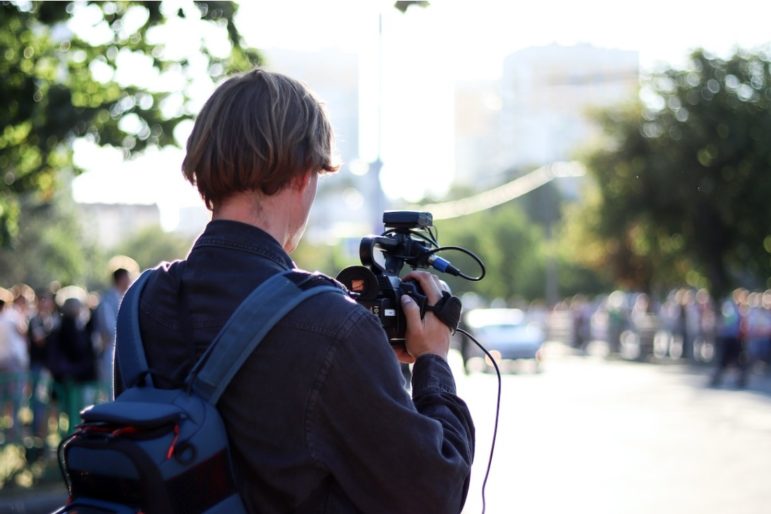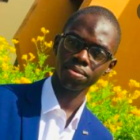
Image: Unsplash
Working on investigations as a young journalist isn’t easy. Nonetheless, university-based investigative journalism is on the rise, and an increasing number of students around the world are producing impactful, hard-hitting stories alongside their academic studies. University news sites provide the ideal opportunity for students to cut their teeth in the industry, and campuses are fertile ground for those seeking out important leads.
University-based investigative journalism centers have sprung up on campuses across the West, including nearly all major US journalism schools and at Norway’s University of Bergen, Canada’s University of British Columbia, and South Africa’s University of the Witwatersrand. (For a look at the depth of US campus-based investigative reporting, check out the student awards given by Investigative Reporters and Editors each year).
Without the all-important backing of a media organization, however, students can face a range of difficulties. There is an added layer of complexity when the subject of an investigation is the university itself, particularly when the focus is the failings of an often bureaucratic academic system.
Moreover, while there are plenty of examples of student reporters who are supported by their institutions, there are many others who face a lack of cooperation, if not outright opposition, from their ostensible benefactors.
Well-financed and editorially independent student papers may be the norm in some parts of the world, but elsewhere there are many that face funding issues, censorship, a lack of faith in their reporting, and, in some extreme cases, violent physical attacks. In Russia, for example, student journalists in Moscow were sentenced to two years of “corrective labor” for their work supporting freedom of assembly. And in China, a prominent student reporter was recently detained in a secret “black jail” without access to legal assistance.
To find out the pressures that student journalists confront, GIJN spoke to current and former student reporters from around the world about their experiences. We started in Africa, where despite the fact that student reporting is fast becoming a key pillar of journalism development, those involved describe widespread repression and discrimination.
Threats to Personal Safety and a Lack of Tools
A former student investigative reporter at South Africa’s University of the Witwatersrand, Nondu Lehutso ventured into investigative journalism “to truly dig deep into issues, to afford people the understanding needed to make informed decisions.”

Nondu Lehutso. Image: Courtesy of Lehutso
She believes that investigative reporting is harder as a student, as it poses a danger to both school grades and personal safety.
“Venturing into investigative journalism as a student is very challenging because you are still young, still navigating the space of being a journalist,” she explains. “You have to consider your health and safety.”
There’s also the added pressure of protecting your loved ones should anything go wrong, Lehutso adds.
“I think the difficulty is in learning how to gauge whether a story is really worth taking up, and whether you as a student would be able to stand by it and protect your loved ones if it could put their safety in jeopardy.”
For example, in March of last year, Lehutso says that she was fired upon by the South African police while reporting on student protests. “I was profiled as being part of the protest despite actively identifying as a journalist,” she claims. “Because of negligence and irresponsibility on the part of the police, I was shot at twice.”
Reagan Kiyimba, a freelance investigative reporter and fact-checker from Uganda’s Makerere University, says that the lack of attachment to mainstream newsrooms is challenging for students.

Reagan Kiyimba. Image: Courtesy of Kiyimba
“Because you don’t have an ID identifying you as a professional journalist, people fear giving you information, and they don’t trust your credibility,” he notes. “You book exclusive interviews, but people see you as someone who isn’t capable of rendering the information to the public.”
Kiyimba also says that student journalists don’t always have the resources that they require.
“We sometimes lack the tools needed to effectively function as investigative reporters,” he says. “Students may give up because they can’t access the tools that would help them to investigate an issue, leading to student journalists falling off the field.”
Meanwhile, freelance journalist and zonal coordinator of Nigeria’s National Union of Campus Journalists, Abiodun Jamiu, claims that he faced repression from his university’s management for writing an undercover investigative report on the sad state of the campus health clinic.

Abiodun Jamiu. Image: Courtesy of Jamiu
He believes that the wave of student investigative reporting is inexorable, and universities must change their approach to young reporters.
“Institutions have to understand that there is a need for students to ensure that informed decisions are being made,” he said. “Student investigative reporting is inevitable for providing feedback on what’s happening – feedback for the university to act on.”
“Universities must realize that student journalists are obliged to adhere to the core principles of journalism,” Jamiu emphasizes.
Finding the Right Funding Model
Katie Tarrant, now a news reporter for The Sunday Times in the UK, was a news editor several years ago at The Boar, the University of Warwick’s student paper. She investigated the “group chat scandal,” where a leaked chat revealed that male students from the university were discussing sexually assaulting their female peers.
“The editor-in-chief became aware of a group chat with 13 men in it, and they were sharing messages saying that they would rape first-year students and women that they knew,” Tarrant explains. “Racism, sexism, homophobia – you name it, they were sharing messages of this nature in the chat – and we got hold of about 100 screenshots of it.”

Katie Tarrant. Image: Courtesy of Tarrant
Tarrant says that as the investigation progressed – and without the backing of a professional media outlet and the legal team that comes with it – journalists at The Boar faced a range of challenges.
“It was quite scary for us. These were serious allegations against the university and the men involved, and we had been told that they had lawyers behind them that wouldn’t be afraid to sue us,” she explains. “We had a lawyer that we would run everything through, but he was just one man that we’d pay £50 (US$60) a month or something. He was really experienced and very helpful – but it was scary sending these emails to the university, and being part of the university as well.”
Like many other student journalists working on investigations involving university misconduct, she was also worried that her work at the paper could present a threat to her qualifications.
“It probably sounds paranoid,” Tarrant says, “but there were a couple of times where I thought: is there any way that this might actually affect my grades – being somebody that is doing genuine reputational damage to the university, and I’m seeing that they’re not being particularly transparent behind the scenes?”
Another complicating issue – that mirrors the dilemma facing many commercial media sites – was that The Boar relied on advertisements and sponsorships from the local community, which may not always embrace investigations that paint it in a bad light.
“We were sponsored by one of the letting agents in Leamington Spa, a town where many students live, and I always thought that was contentious,” Tarrant recalls. “I ended up doing a documentary on housing in Leamington, and afterwards that sponsor pulled their advertising. They were giving us around £2,000 a year, which is basically what you need to run a student newspaper – you can print around four papers with that.”
“[Students on] the business team at the paper were very stern with me,” she recalls. “They said: ‘Are you sure you want to print this? Because we’re probably going to lose this advertising, and then you lose the ability to print all of these other stories.’”
The university’s Students’ Union (SU) also had power over the newspaper’s purse strings.
“We were a publication that was essentially in debt to the SU because we had a rubbish run with advertising, so we as a publication had no money,” Tarrant says. “The SU could decide how much we could go into debt before it really started being a problem and we couldn’t print anymore, so you had to have a good relationship with them. I would say that there’s a conflict of interest when your funding is tied into a place that you might want to hold to account.”
Nonetheless, Tarrant believes that having funding support from an adjacent institution like the SU is the most effective way of financing student reporting.
“It’s not the easiest model of funding, but I think that as long as you have editorial independence from the SU, it’s probably the best,” she says. “Our group chat investigation led the university to change its sexual assault procedures and many other UK universities followed suit. Without this funding, it’s possible that this never would have come to light.”
Low Pay and Threats from Authorities
Rishav Raj Singh is a student and freelance reporter in Madhya Pradesh, India. He says that student freelancers are regularly exploited by professional media outlets in the region, despite the fact that publishing investigations while at university can put them in danger.
“Being a journalist in Madhya Pradesh already puts you at risk of being targeted,” he explains. In April of this year, a journalist was allegedly assaulted and forced to remove his clothes in a Madhya Pradesh police station after covering a protest.
“When you’re a student journalist you’re even more vulnerable because your career has just started,” Singh adds.

Rishav Raj Singh. Image: Courtesy of Singh
He says that student journalists also face funding issues when covering stories that require extensive research and financial investment, because organizations rarely cover the cost.
“They don’t recognize the time and money we’ve invested in visiting the location and drafting the story in detail,” he explains. “They have a set rate for university students, and it’s less than $25. The normal rate for a freelancer here is anywhere between $75 and $140 depending on the story and the publication. Especially while freelancing, media organizations act as if they’re doing us a favor by giving us a platform at the start of our careers, despite the quality of the story that they get from us.”
He claims that he has also been threatened by Indian political figures and the local police force following some of his stories. One article, about a lawyer who was brutally beaten by the police in Madhya Pradesh, caused police to track Singh down.
“I was the first to highlight this issue; the victim was an acquaintance from my university,” he says. “The police traced my contact and threatened me, telling me to take down the story or they would implicate me under false charges. If this happens to me as a student, I’d face issues in even finishing my degree.”
Legal Battles Over Access to Information
In 2016, the University of Kentucky sued its own student newspaper, the Kentucky Kernel, in response to an open records request from the publication. The Kernel had gotten a tip that a professor was paid to quietly leave the university following accusations of sexual misconduct with a student.
“Through an open records request we confirmed some of the details of the story, but ultimately the university refused to hand over other investigative documents about the case,” says Will Wright, the former editor-in-chief of the paper who is now a politics reporter at the Charlotte Observer.
“Because the university refused, we made an appeal to the Kentucky Attorney General,” he explains. “His office agreed that the university should deliver them. They still refused, and sued us as a way to appeal to the courts.”

Will Wright. Image: Courtesy of Wright
A confidential source connected to the case released the records to the Kernel in 2016, which allowed them to continue with their reporting on the accusations against the professor.
“We got the documents through an alternative source pretty quickly after all this started,” Wright explains. “The court case became about principle and setting precedent more than anything.”
And while the newspaper itself was at risk of financial consequences, individuals benefited from not being named in the lawsuit, which allowed other students to continue with the dispute.
“I graduated not long after this all began,” Wright explains. “The one thing I think was so great about all of this was that year after year, student journalists took on the responsibility of this case. It was a long-term project with many people playing a role.”
In March 2021, after a six-year legal battle, the Kentucky Supreme Court ruled in favor of the Kernel.
“We had no doubt that we were in the right, or at least I didn’t,” Wright says. “Emotionally, it felt like we were doing something important – and I still believe we were.”
Reflecting on the experience, Wright says that he would encourage other students in the situation to be persistent.
“If you have the right support system, take open records battles as far as it takes,” he says. “It can be intimidating, but universities and governments must be honest, and you can play a key part in making that happen.”
The Future of Student Investigative Reporting
Despite all of the challenges that student journalists face, young reporters have shown a commitment to unearthing the truth on campus and uncovering stories from further afield. Facing these issues head-on also allows journalists to enter the industry with knowledge of the obstacles that often arise in professional newsrooms.
Richard Danbury, who directs the MA program in investigative journalism at City, University of London, believes that working on investigations as a student is pivotal to developing as a reporter.
“I’ve been teaching and training investigative journalists for about a decade,” he says. “Really, the only way to do this is to get students to work on their own investigations. These have to be done in a safe, controlled way because students make mistakes. [But] you can’t learn without making mistakes.”
Additional Resources
Making Your Mark: Tips for Up-and-Coming Investigative Journalists
The Collaboration That Matched Award-Winning Reporters with University Students
The Teenage Investigative Reporters Taking on Corruption in Kyrgyzstan
 Emily O’Sullivan is an editorial assistant at GIJN. She previously worked as the deputy editor of a Birmingham-based media group, before beginning an MA in Investigative Journalism at City, University of London. She has worked as a researcher for a range of investigative journalism projects, including BBC’s Panorama program.
Emily O’Sullivan is an editorial assistant at GIJN. She previously worked as the deputy editor of a Birmingham-based media group, before beginning an MA in Investigative Journalism at City, University of London. She has worked as a researcher for a range of investigative journalism projects, including BBC’s Panorama program.
 Adedimeji Quayyim Abdul-Hafeez is a freelance journalist and creative storyteller, with core interests in culture, media, law, and technology. He is an associate editor with Punocracy, and the features editor of The Film Conversation.
Adedimeji Quayyim Abdul-Hafeez is a freelance journalist and creative storyteller, with core interests in culture, media, law, and technology. He is an associate editor with Punocracy, and the features editor of The Film Conversation.
